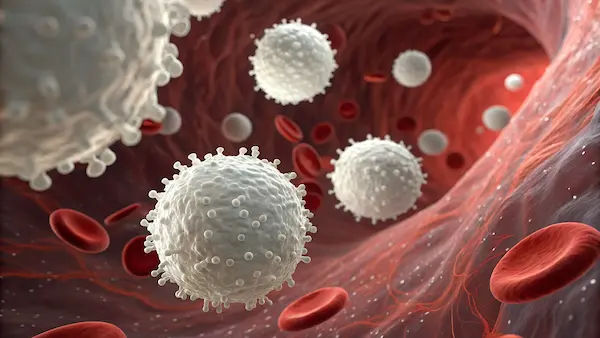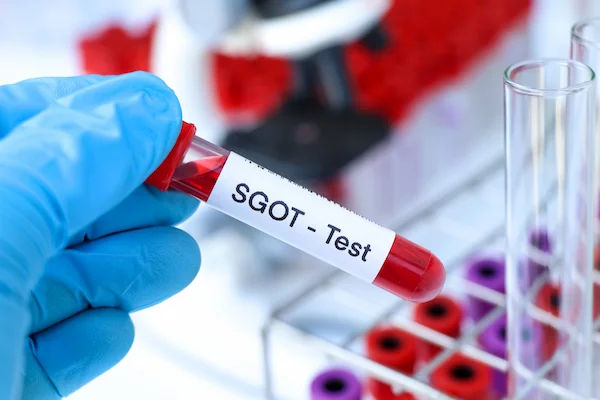How To Reduce SGOT Quickly?
Learn how to reduce SGOT levels quickly with effective lifestyle changes, diet, and natural remedies. Support liver health and get medical advice on Apollo 24|7.

Written by Dr. Shaik Abdul Kalam
Reviewed by Dr. J T Hema Pratima MBBS, Fellowship in Diabetes Mellitus
Last updated on 13th Jan, 2026

Introduction
SGOT (Serum Glutamic-Oxaloacetic Transaminase), also known as AST (Aspartate Aminotransferase), is an enzyme found in the liver, heart, and muscles. High SGOT levels in a blood test may indicate liver damage, heart conditions, or muscle injury. If your test results show elevated SGOT, it’s important to take steps to bring them back to normal.
This article will discuss what causes high SGOT levels, how to reduce them quickly, and lifestyle changes that can help maintain healthy liver function.
What Causes High SGOT Levels?
Several factors can contribute to increased SGOT levels, including:
Liver diseases (hepatitis, fatty liver, cirrhosis)
Heart conditions (heart attack, heart failure)
Muscle injuries (intense exercise, trauma)
Alcohol consumption (excessive drinking damages liver cells)
Medications (certain painkillers, cholesterol drugs, or antibiotics)
Infections (viral hepatitis, mononucleosis)
Symptoms of High SGOT Levels
If your SGOT levels are elevated, you may experience:
Fatigue
Weakness
Jaundice (yellowing of skin and eyes)
Abdominal pain or swelling
Dark urine
Nausea or vomiting
If you notice these symptoms, consult a doctor for further evaluation.
Consult Top Doctors for Your Symptoms
How to Reduce SGOT Levels Quickly?
Lowering SGOT levels involves improving liver health and addressing the underlying cause. Here are some effective ways:
1. Eat a Liver-Friendly Diet
A healthy diet is crucial for liver detoxification and reducing SGOT levels:
Increase fruits and vegetables – Antioxidant-rich foods like berries, spinach, and carrots help detoxify the liver.
Choose lean proteins – Opt for fish, chicken, and plant-based proteins instead of fatty meats to avoid overloading the liver.
Avoid processed foods – Reduce intake of fried, sugary, and packaged foods for better liver health.
Drink green tea – It contains antioxidants that support liver function.
2. Stay Hydrated
Drinking plenty of water helps flush out toxins and supports liver function. Aim for 8-10 glasses daily.
3. Limit Alcohol Consumption
Alcohol is a major cause of liver damage. Reducing or eliminating alcohol can significantly lower SGOT levels.
4. Exercise Regularly
Moderate physical activity improves metabolism and liver health. Avoid excessive workouts that may cause muscle damage.
5. Manage Medications
Some medications (like statins or painkillers) can raise SGOT levels. Consult your doctor before stopping or changing any medication.
6. Try Natural Remedies
Incorporate these natural remedies to support liver health:
Turmeric – Contains curcumin, which reduces liver inflammation.
Milk thistle – A herbal supplement known to support liver detoxification.
Garlic – Helps activate liver enzymes that flush out toxins.
Caution: Herbal supplements like milk thistle or turmeric should be used under medical supervision, especially in patients with existing liver disease or those taking other medications, due to potential interactions or hepatotoxicity.
7. Get Enough Sleep
Rest allows the liver to repair itself. Aim for 7-8 hours of quality sleep each night.
When to See a Doctor?
If your SGOT levels remain high despite lifestyle changes, consult a doctor immediately. Persistent elevation may indicate serious conditions like hepatitis, cirrhosis, or heart disease.
If you’re concerned about your liver health, you can easily book a Liver Function Test (LFT) through Apollo 24|7. Early detection helps in better management and treatment.
Assess Your Liver Health
Final Thoughts
High SGOT levels can be alarming, but with the right diet, lifestyle changes, and medical guidance, they can be managed effectively. Focus on a liver-friendly diet, stay hydrated, exercise moderately, and avoid alcohol. If symptoms persist, seek medical advice promptly.
Consult Top Hepatologists
Consult Top Doctors for Your Symptoms

Dr. E Prabhakar Sastry
General Physician/ Internal Medicine Specialist
40 Years • MD(Internal Medicine)
Manikonda Jagir
Apollo Clinic, Manikonda, Manikonda Jagir
(150+ Patients)

Dr. Akshatha Manjunath
General Surgeon
8 Years • MBBS, MS
Bangalore
Apollo Clinic Bellandur, Bangalore

Dr. Pukhraj Singh Jeji
Gastroenterology/gi Medicine Specialist
13 Years • MBBS, MD ( Internal Medicine ), DM ( Gastroenterology ), Consultant - Gastroenterology
Bhubaneswar
Apollo Hospitals Old Sainik School Road, Bhubaneswar

Dr. Sushith C
General Physician
2 Years • MBBS
Bengaluru
PRESTIGE SHANTHINIKETAN - SOCIETY CLINIC, Bengaluru

Dr. Aswin S. Krishna
Hepatologist
10 Years • MBBS, MD (Internal Medicine,MMC), DM (Hepatology, MMC), PDF(Fellowship in Liver Transplanatation)
Chennai
Apollo Hospitals Greams Road, Chennai
(125+ Patients)
Consult Top Hepatologists

Dr. E Prabhakar Sastry
General Physician/ Internal Medicine Specialist
40 Years • MD(Internal Medicine)
Manikonda Jagir
Apollo Clinic, Manikonda, Manikonda Jagir
(150+ Patients)

Dr. Akshatha Manjunath
General Surgeon
8 Years • MBBS, MS
Bangalore
Apollo Clinic Bellandur, Bangalore

Dr. Pukhraj Singh Jeji
Gastroenterology/gi Medicine Specialist
13 Years • MBBS, MD ( Internal Medicine ), DM ( Gastroenterology ), Consultant - Gastroenterology
Bhubaneswar
Apollo Hospitals Old Sainik School Road, Bhubaneswar

Dr. Sushith C
General Physician
2 Years • MBBS
Bengaluru
PRESTIGE SHANTHINIKETAN - SOCIETY CLINIC, Bengaluru

Dr. Aswin S. Krishna
Hepatologist
10 Years • MBBS, MD (Internal Medicine,MMC), DM (Hepatology, MMC), PDF(Fellowship in Liver Transplanatation)
Chennai
Apollo Hospitals Greams Road, Chennai
(125+ Patients)

.webp)


